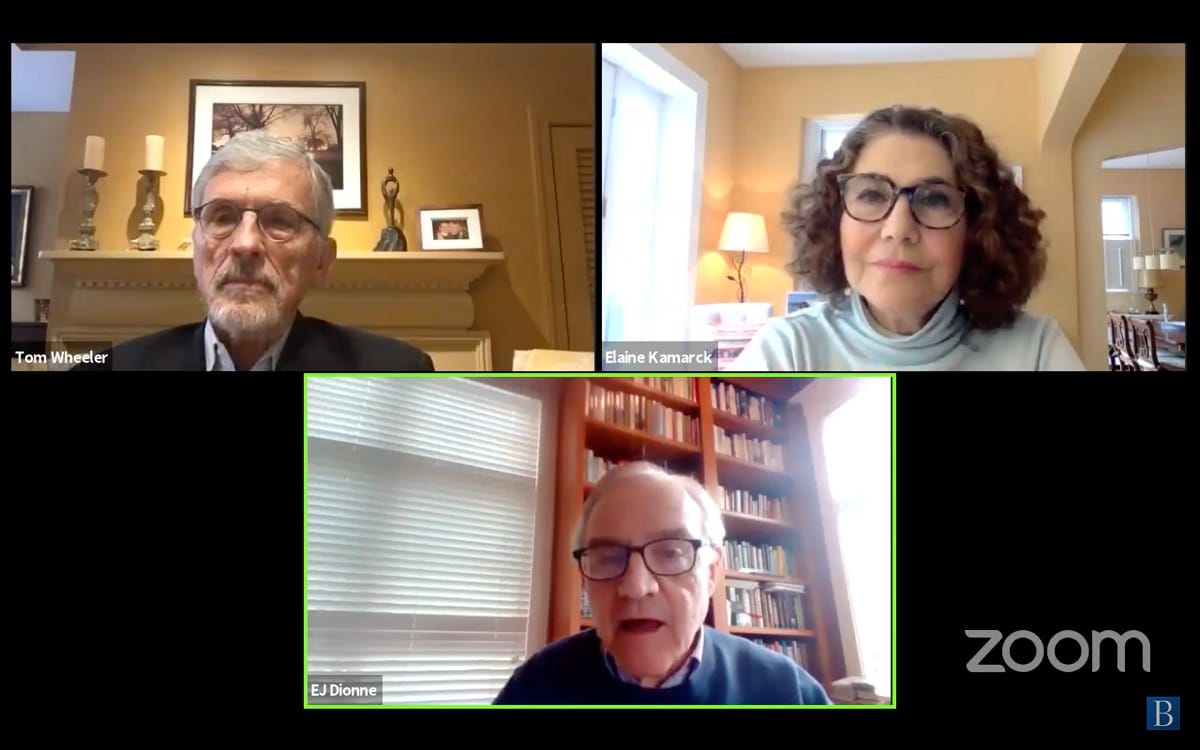Brookings Institution Officials Urge America to Prepare for Remote Voting in November 2020
April 14, 2020— “Compared to other crises, it is more straightforward to solve,” said Elaine Kamarck, Brookings senior fellow of governance studies, of the issue of voting due to the coronavirus outbreak. She spoke at a webinar on Tuesday hosted by the Brookings Institute titled “Protecting election
David Jelke

April 14, 2020— “Compared to other crises, it is more straightforward to solve,” said Elaine Kamarck, Brookings senior fellow of governance studies, of the issue of voting due to the coronavirus outbreak.
She spoke at a webinar on Tuesday hosted by the Brookings Institute titled “Protecting elections during the coronavirus pandemic”.
According to Kamarck, 38 percent voted remotely or by absentee ballot in 2016.
“We already have a lot of experience with voting remotely,” Kamarck said. Officials, specifically government officials, need to “just do it,” referring to enacting the six points she had called on to make remote voting as robust as possible going into November. The six points are as follows:
- Implementing “all-mail ballots”
- Encouraging states to enact “no-excuse absentee ballots,” which allow any citizen to cast an absentee ballot
- “Establishing early voting locations” for the purpose of reducing the number of people going to the polls on Election Day
- “Setting a goal” of having 50% of our population voting remotely
- “[Biting] the bullet and make election days a holiday” so that the majority of voters don’t swell the polls immediately before 9 a.m. and after 5 p.m.
- States preparing their polling places ready for general elections
Kamarck said that it would cost around $2 billion to carry out the necessary provisions.
“In the scheme of things, this is not an enormous amount of money,” Kamarck said, pointing out that we just passed a $2 trillion stimulus package through the CARES Act. These funds would be integral to setting the structure in place to use widespread absentee ballots.
Kamarck added “it’s going to take a long time for these votes to get counted” and that “we may not know who is going to know by 11 p.m. election night.”
Kamarck also pointed out the need to hire younger personnel to run in-person voting polls.
“We need a new generation of poll workers” mainly because the current cadre of poll volunteers are old and therefore especially susceptible to coronavirus. Kamarck suggested training grad students, and Brookings Senior Fellow for Governance Studies E.J. Dionne suggested mobilizing AmeriCorps volunteers
“A national emergency has never stopped a vote and it shouldn’t now either,” said former Federal Communications Commission Chairman Tom Wheeler, a visiting fellow at Brookings who is dubbed a “resident historian” at the institution.
For example, during the first mass mail-in ballots happening during the Civil War, officials went so far as to send messengers into the encampments of Union soldiers to collect votes.
In addition, President Lincoln sent a navy ship down the Mississippi River to collect votes from military boats who weren’t permitted to dock. The Spanish Flu pandemic of 1917 also happened during a quarantine, and the Election of 1918 went off without a hitch, noted Wheeler.
When asked about whether president Trump wields the authority to cancel or postpone the election, Kamarck and Wheeler gave more passionate responses.
“The answer is no,” Kamarck asserted. The Constitution asserts that “Congress sets the date” of the election and would be surprised if the president attempted to do such a thing.









Member discussion